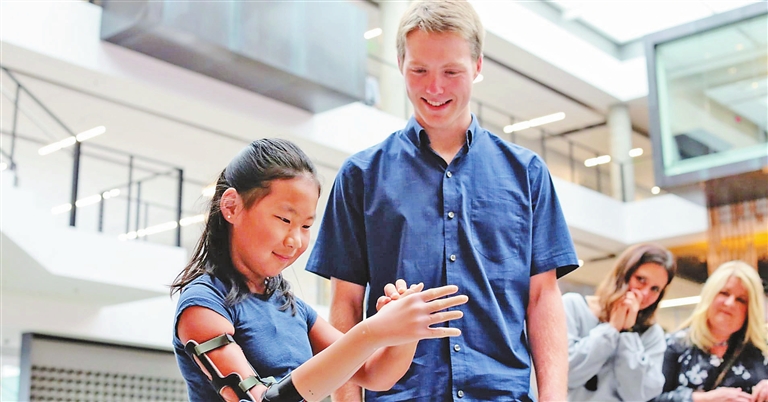
Ten years ago, Easton LaChappelle was a teen watching YouTube videos in his Colorado bedroom on how to build robot arms from LEGOs. Today, he’s the founder of Unlimited Tomorrow, a U.S. company that designs low-cost, 3-D printed prosthetic limbs that can be operated with the mind. It was a chance encounter in the eighth grade that set him on the path to entrepreneurship, LaChappelle says. At a science fair, he met a 7-year-old girl who had a US$80,000 prosthetic arm that he described as “archaic” and offered very little help with her physical needs. “I was shocked to learn how much it costs, especially realizing that she would soon outgrow it and it would become useless at that point,” LaChappelle, now 24, told CNN. “I couldn’t believe this was the best thing available for her, and that’s when I decided to find out how I can create something that provides physical utility.” A prosthetic arm, for instance, should help someone complete daily tasks, like eating with utensils or tying shoes laces, he said. Through its appearance, it could also provide “psychological utility,” he added, emphasizing the importance of his device’s aesthetic. It wasn’t long before LaChappelle’s interest in robotics and prostheses intensified from a hobby to a passion, and ultimately a mission. Through high school, he learned all he could about the technology, and at 17 designed a robotic prosthetic arm that led him to the White House Science Fair, where he used it to shake hands with then U.S. President Barack Obama. After graduating high school, LaChappelle was too preoccupied with his mission to enroll in college. Instead, he launched Unlimited Tomorrow, where he developed its flagship product TrueLimb. The prosthetic arm, which looks and feels very real, uses sensors to read muscles at high resolutions and can be controlled with the mind. “Our device is controlled using muscles within the residual limb. Some of our sockets might have over 20 muscle sensors within it. Our control system is built around the brain being the main processor instead of trying to replicate it and make assumptions,” LaChappelle said. “After enough training, you start to focus on hand movement instead of muscle movement. We decipher the user’s intent and translate that into hand movements.” The prosthetic, now priced at US$8,000, is customized to match the user’s shape, size and skin tone. The limb feels like skin, and the fingers fold the way a human hand does. It even features veins, wrinkles and fingernails that can be painted. (SD-Agencies) | 
